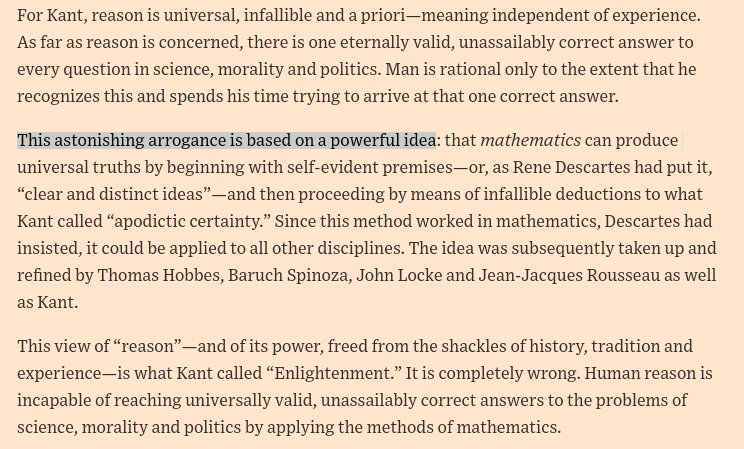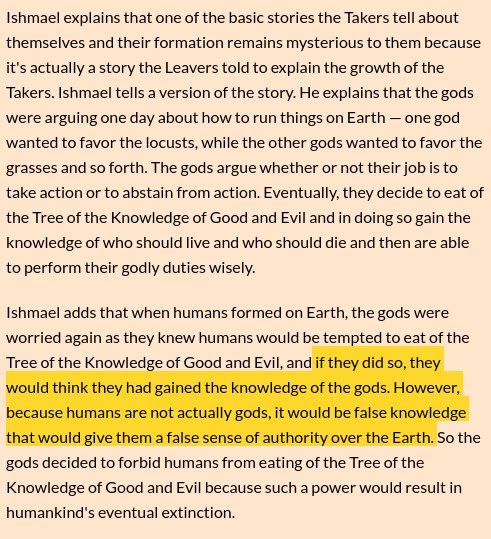Key passage wsj.com/articles/the-d…

The context: Narrator believes agriculture ushered in a new way of living. It pitted Modern (Agricultural) humans against indigenous peoples.
In effect: The Bible = Story to justify agriculture
Why would God not want us humans to have the knowledge of good and evil? We're often told that it was because it was part of God's test.
But Quinn completely turns this on its head

Man would *believe* he knew, but he really wouldn't.
This, to me, is the difference between Skeptics and those for the Enlightenment.
Skeptics (@nntaleb, @ProfFeynman, etc) = Those who seriously doubt our own knowledge, look to world around us, believe in phenomenology.
Enlightenment (@sapinker) = Those who believe they have handle on things b/c of human's ability to reason.
Those following Enlightenment *will* contribute to society, but it can/will be offset by top-down decisions that wreak havoc on people.
Skeptics will be slow to progress, but will keep the benefits of tradition and work bottom-up.
Full disclosures: I did NOT read Enlightenment Now, and am NOT an expert on @sapinker. This is just an archetype I keep coming back to:
* Knowledge vs. False-Knowledge
* Science vs Scientism


